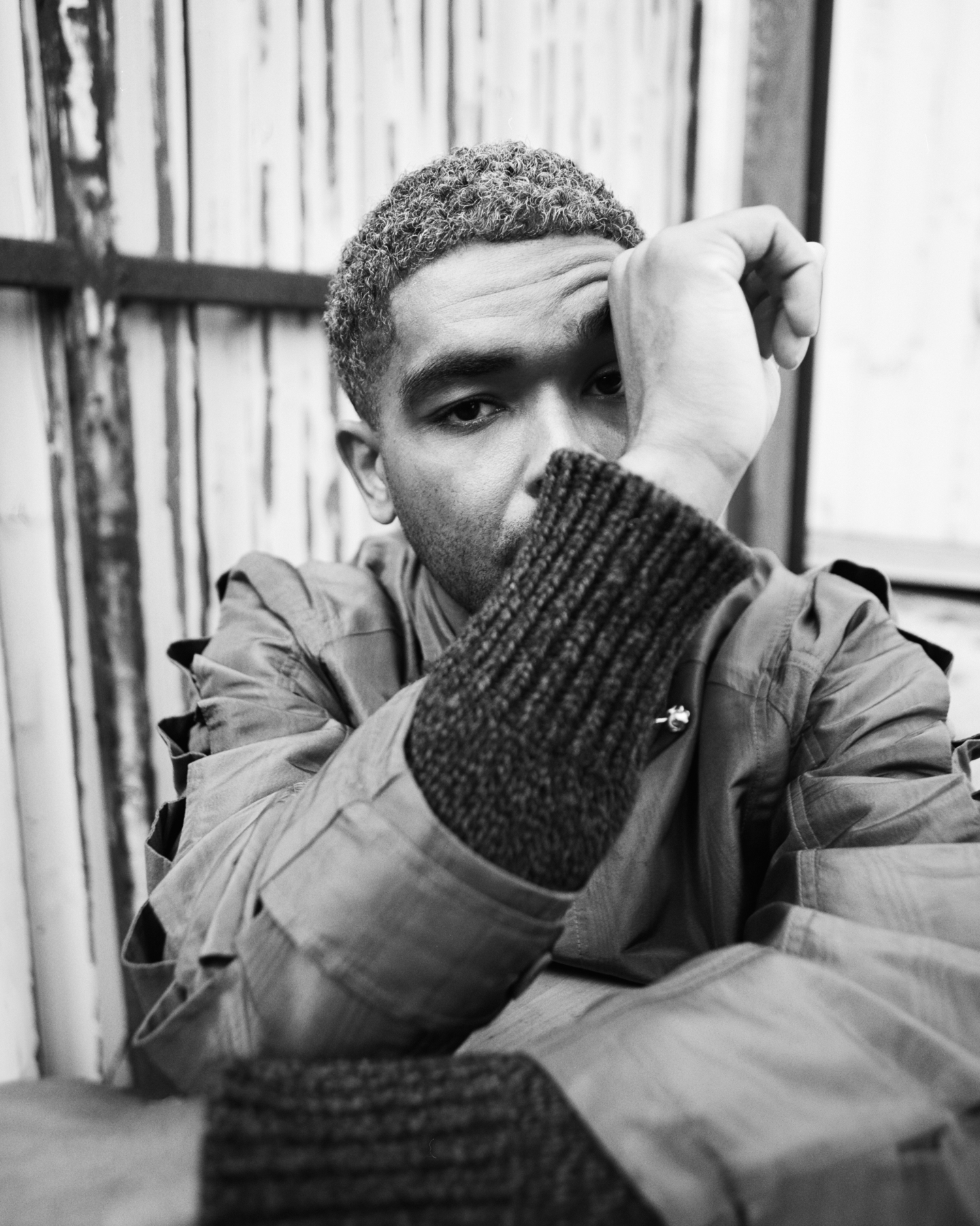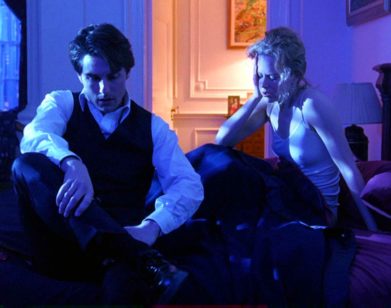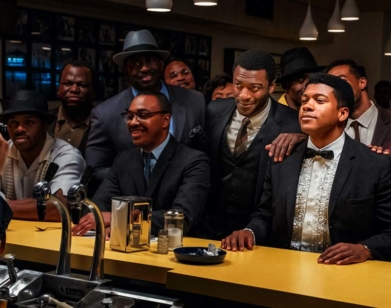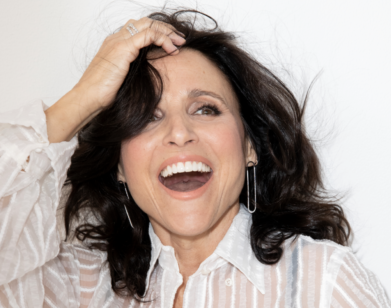leading man
Kingsley Ben-Adir Tells Regina King How He Became Malcolm X (and Barack Obama)
Some actors are naturally attuned to playing likeable characters—and then there’s Kingsley Ben-Adir. This year alone, the London native has disappeared into, in no particular order, objects of adoration, obsession, reverence, and all-out worship. First, he broke Zoë Kravitz’s heart as the One Who Got Away in Hulu’s update of the Nick Hornby book High Fidelity. Then, he was the solution to Anna Kendrick’s boy problems in the HBO Max romantic comedy series Love Life. After he was through enchanting the opposite sex, the 34-year-old trained his charisma on two men who embody the word. As President Barack Obama in the Showtime miniseries The Comey Rule, about the lead-up to the Mueller investigation, Ben-Adir’s calm and resolute screen presence stood in stark contrast to Brendan Gleeson’s sinister and shambling portrayal of Donald Trump. This winter, Ben-Adir will step into the shoes of Malcolm X in Regina King’s film One Night in Miami, a buzzy ensemble that imagines what happened on the night of February 25, 1964, after the newly crowned heavyweight champion Cassius Clay (Eli Goree) gets together with his friends Sam Cooke (Leslie Odom Jr.), Jim Brown (Aldis Hodge), and Malcolm X, who is on the verge of leaving the Nation of Islam. To capture the civil rights icon at this precarious crossroad, Ben-Adir tells his director, he dug and drilled until he reached the core.
———
REGINA KING: When I was going through the auditioning process to cast Malcolm X, one of the things I got back from a lot of actors was that they didn’t want to come in, because they felt like he had already been portrayed so well [by Denzel Washington in the 1992 film Malcolm X]. Let’s start, then, with the biggest question: What made you different?
KINGSLEY BEN-ADIR: The first time I read the script, it was for Cassius [Clay], but I was completely taken in by the conversation that Sam [Cooke] and Malcolm were having. And then I read it again, and the conversation kept jumping off the page, so I knew that if I was going to be in this film, I wanted to play Malcolm. Over that weekend, I began investigating, looking at what Malcolm had been going through at that time: that feeling that he was being pushed out of the Nation, that the FBI were following him, and that his life was in danger. Suddenly, the script just opened up and the stakes became really clear. And then on top of that, you were directing, which makes it a whole different thing.
KING: One of the things that made me excited was how much you understood that this was a Malcolm that we hadn’t seen. You understood how important it was to not only show his vulnerability, but also that he was a father and husband. I speak for everyone when I say your dedication to embodying Malcolm blew our minds and made us step up our game. One of the things we talked about was the importance of seeing Malcolm smile, and how much in your research you had seen him smiling— that he had jokes. I did a lot of research on all of these men, but you found videos that I had never seen before. Did you use something other than Google?
BEN-ADIR: He has so many videos and documentaries on YouTube, and when you watch them 20 or 30 times, other things start to become clear. The deeper I got, the more things began to pop out. If I wasn’t listening to him or watching him, I was in a deep daydream about him. We’d have days on set where I’d come in and the way that I was thinking about a particular scene had completely flipped because of something I’d just listened to in the car. There was a huge amount of me just drilling the language. I drilled it like a maniac over Christmas. I reached out to this guy named Buzzeo who had just left drama school, and said, “For X amount of money, would you be willing to come over to my apartment at 8 a.m. and stay with me until 9 p.m., just drilling?” And he did. Over those 11 days, he was reading Malcolm and I was reading Malcolm, and then we would have long conversations about Malcolm, have a tea break, and then we’d watch videos on YouTube. We spent that entire period just digging and digging and digging.
KING: You signed on to play Barack Obama in The Comey Rule prior to One Night in Miami. Was there any concern about how you were going to do both of them? I know Malcolm consumed you, but then you had to take those couple of days to play Barack. How were you able to stop being Malcolm for a couple of days, play Barack, and then come back to Malcolm?
BEN-ADIR: I don’t know if I should say this, but by the time we got to the day where I was going to fly to Toronto to play Obama, there was a part of me that didn’t want to leave Malcolm, because we were deep in it. I had it mapped out in terms of a work structure. It was a bit of a juggling situation, but because I’m quite organized and OCD, I took a lot of pleasure in that. I was in full adrenaline mode and prepared for the sleeplessness and the work that was required to do both. There’s something quite exhilarating about having that level of responsibility in terms of how significant these two men are, and I thrived on it. When I got back to London, it took a while to come down. I’ve had a lot of close encounters with big parts that have fallen through. At the time, it really hurt. But all of that was just preparation for this. By the time I taped for Malcolm, I’d been considered to play [Muhammad] Ali, Sam [Cooke], Dr. Dre, and Gil Scott-Heron.
KING: All of those experiences of getting so close to playing real-life characters, and then having it not come to fruition, seems to have energized you: “Well, now I got two.”
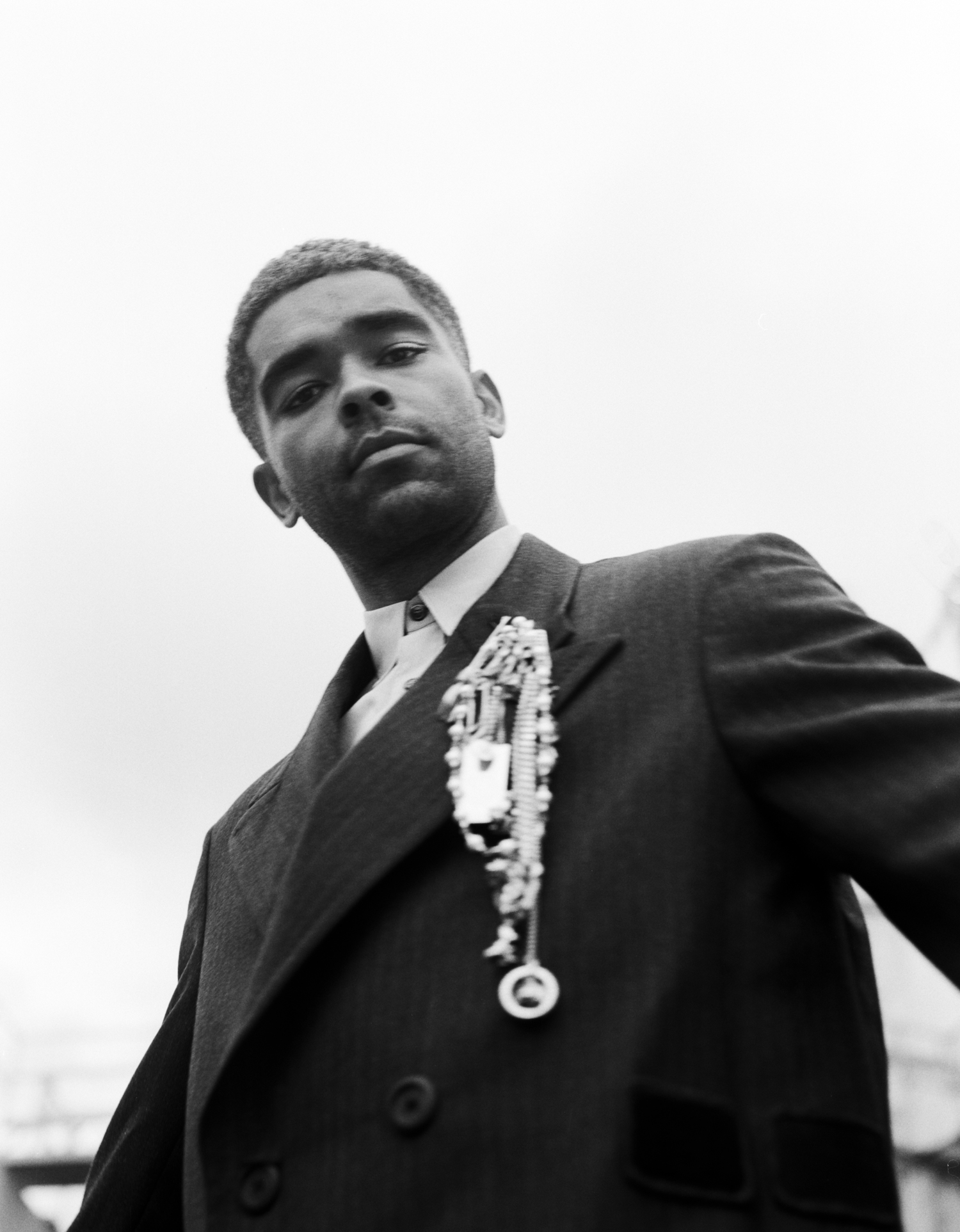
Coat and Shirt by Salvatore Ferragamo. Necklaces and Keychains (worn as brooches) by Dior Men. Pin by Givenchy.
BEN-ADIR: Exactly. So I had to go for it with full enthusiasm. And it was thrilling.
KING: Speaking of switching gears, you had just come from doing High Fidelity and Love Life, where you played the romantic ideal. Does it flatter you when you’re talked about in that way? I know that when I told women that you were in my film, they were like, “Oh my god!” How does that make you feel?
BEN-ADIR: It’s embarrassing more than anything. With High Fidelity and Love Life, and even [the AMC show] Soulmates, where I play one half of a married couple, I found a way to make it interesting for myself, in that all three of them are completely in service of the leading woman. The work that was required of me in High Fidelity was to be in service of Zoë [Kravitz], and to be emotionally available to the vulnerability of being in love. Between “action” and “cut,” you can find nuances that make the work interesting. I have quickly found a way to concentrate on how those parts are interesting from an acting point of view. The emotional place that me and Zoë got to in episodes nine and ten of High Fidelity was some of the most rewarding and exposing acting I’ve ever done in front of a camera. So I try to put the flattery aside and concentrate on the task.
KING: I think with a lot of actors playing those types of roles, people sometimes think that the intention of the actor is to be adored by women, or men, but a lot of people don’t realize that you’re approaching it as an actor, not as, like, “I want everyone to think that I’m the sexiest man alive.”
BEN-ADIR: [Laughs] There’s something I’ve wanted to ask you, and I think this might be the perfect chance. I find it really hard to think that someone could watch a TV show that I shot three years ago, and make a decision about casting me in a project because of what I did then, because I feel like I’m constantly changing and learning and growing. Do you work in a way that’s different to how you did when you were first starting?
KING: What you’re saying is true. Even just as a human being, I’m forever changing. My core values are the same, and that’s going to always make me be who I am, but as far as the experiences that I pick up along the way, those inform my art. The actor that I was six years ago is different now because I’ve experienced more. I’m more informed, and I have more to give to any role because of that. From a director’s perspective, I hear you when you say, “How can I be chosen for a role or be told I’m not right for a role based on something that I did years ago?” I agree with that. When you have an actor whose work is good, but you haven’t seen any of their work that is similar to the role that you’re casting, and that actor shows passion and the desire to show you that they can do it, I feel like it’s your job to stop and take the time to receive what that actor may bring. If not, you could miss out on something really special.
———
Grooming: Rohan Nurse at Mo Better Cutz
Photography Assistant: Daisy Gunn
Special Thanks: Bow Bunker

